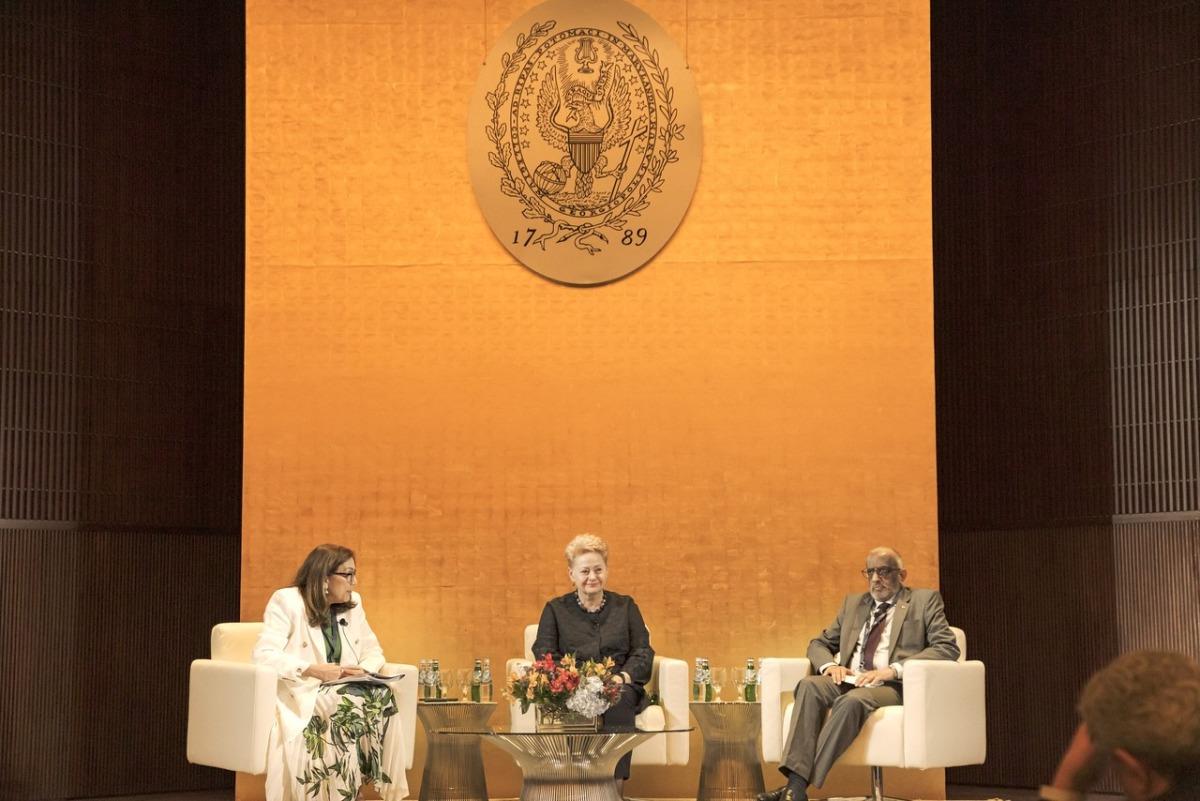
Qatar's Push For Gender Equality In International Diplomacy Highlighted
Doha, Qatar: Qatar's efforts, which have brought about changes in women's role in international relations and diplomacy, were highlighted and acknowledged during Georgetown University in Qatar (GU-Q)'s Hiwaraat conference on Thursday.
At the conference on 'Gender in Foreign Policy,' prominent diplomats and experts discussed timely topics and how to improve foreign policy and practice by gender-informed approaches across multiple contexts.
Permanent Representative of the State of Qatar to the UN in New York, H E Sheikha Alya Ahmed bin Saif Al Thani, in a recorded video address during the conference's opening session, highlighted Qatar's global leadership in championing women's rights.
“The state of Qatar has been a strong player in making sure that the human rights and gender equality principles are part of the commitments,” she said.
She further explained Qatar's ongoing efforts to encourage women's role in international relations and diplomacy, especially through the Group of Friends on Gender Parity.
She said,“The role of women in international relations and diplomacy has undergone a significant transformation.”
However, noting that only four women have held the presidency of the UN General Assembly, Sheikha Alya said,“Though the number of women permanent representatives has increased greatly, the UN General Assembly is still far from having a gender-equal representation.”
She also highlighted Qatar's efforts in adopting the International Day to Protect Education from Attack marks a significant achievement in promoting and protecting girls' education, especially in conflict zones.
Dr. Safwan Masri, Dean of GU-Q
The Dean of GU-Q, Dr. Safwan Masri, highlighted that seven in ten students at GU-Q are women, saying it shows the potential to bring a new gender balance to the diplomatic field.
“More than ever, we need more women at the foreign policy table. And I can think of no better expression of [GU-Q's] mission and values than today's discussion on gender in foreign policy.” During the conference, several other seasoned women diplomats reflected on the importance of diversity in decision-making processes. They highlighted the role of education and mentoring in creating more access for women at the decision-making level.
US Deputy Chief of Mission in Qatar, Natalie Baker, opened the session on Gender in Conflict Situations, drawing on examples from her diplomatic career. She discussed why women's voices are essential in diplomacy and conflict resolution.“Women should have a seat at the table and negotiate the end of conflict and in post-conflict, peace-building efforts, and reforms, and we should insist on it. Women should have a chance to serve their societies in post-conflict scenarios, offer opportunities to transform society, its structures, and its governance to include greater, greater support for women's rights, inclusion, and empowerment,” she said.
Natalie Baker, US Deputy Chief of Mission in Qatar
Baker also focused on separate actions taken by Qatar and the US government to equip women with the tools they need to prepare for leadership positions. The US government supports a number of educational and professional exchange programs that aim to build skills and diverse networks among women and girls,” she said.
Highlighting that Education City offers education for women, including those from countries that prohibit education for girls, Baker said,“...Thorough the Qatar Foundation H H Sheikha Moza bint Nasser has built in a model of excellence in supporting education and training in conflict zones and underdeveloped nations around the world.” She also commended GU-Q's Diplomat for a Day program, which offers women students insight into diplomacy and international affairs from senior women diplomats.
The conference's sessions connected perspectives from the Global North and Global South and highlighted positive examples of countries, including Lithuania, South Africa, and the European Union, actively striving to achieve a gender balance in diplomatic postings.
Another prominent speaker during the conference was former President of Lithuania, Dalia Grybauskaitė who strongly presented her views on gender and diplomacy said that gender is no longer under discussion in her country because gender parity is a fully accepted fact of life. Grybauskaitė was speaking along with the Ambassador of South Africa to Qatar, H E Ghulam Hoosein Asmal, in a session on why gender still matters in foreign policy. She emphasized that women should be appointed to positions, including diplomacy, upon excellence, and it should be a natural process. In advice for women to lead, she said,“Build resilience and protect yourself from all attacks...The more you are on top, the more you need to be more resilient.”

Legal Disclaimer:
MENAFN provides the
information “as is” without warranty of any kind. We do not accept
any responsibility or liability for the accuracy, content, images,
videos, licenses, completeness, legality, or reliability of the information
contained in this article. If you have any complaints or copyright
issues related to this article, kindly contact the provider above.


















Comments
No comment